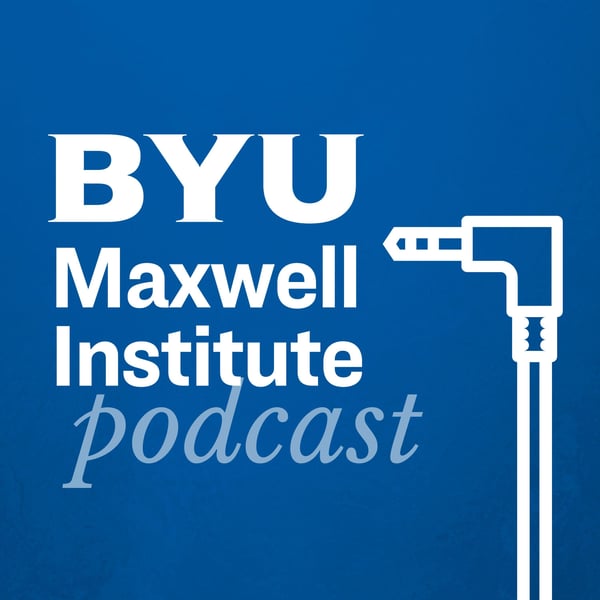Maxwell Institute Podcast #164: How Can We Develop Resilient Belief? Featuring Katie Paxman
Maxwell Institute Podcast
Maxwell Institute Podcast
4.8 • 789 Ratings
🗓️ 17 July 2023
⏱️ 48 minutes
🧾️ Download transcript
Summary
Transcript
Click on a timestamp to play from that location
| 0:00.0 | Hello and welcome to the Maxwell Institute podcast, where we seek out faith illuminating scholarship. |
| 0:15.0 | I'm Rosalind Welch, Associate Director at the Institute. |
| 0:19.0 | This season, we're exploring the questions we should be asking. |
| 0:24.0 | Thanks for joining us. Life is a learning experience, they say. If so, what have you learned from life? |
| 0:31.4 | Do you know it for sure? Absolutely sure. I'll confess, this line of questioning leaves me feeling trapped in a skeptical corner. Is there a better question we should ask? Today on the podcast, I talk with Katie Paxman, Associate Professor of Philosophy at BYU. Dr. Paxman studies the work of David Hume, and she's thought a lot about certainty, humility, and the ambition to form true |
| 0:56.5 | beliefs. She helped me reframe my question to avoid getting trapped in skepticism. Instead, I might ask, |
| 1:03.8 | what kind of person do I want to be when I encounter uncertainty? Elder Richard G. Scott said, |
| 1:10.2 | I am convinced that there is no simple formula or technique that would immediately allow you to master |
| 1:16.9 | the ability to decide questions with absolute certainty. Instead, he goes on, |
| 1:22.3 | essential personal growth will come as you struggle to learn. My conversation with Katie showed me how to approach |
| 1:29.7 | that struggle with humility, hope, and faith. I hope you enjoy the conversation. Hi, Katie Paxman. |
| 1:36.2 | Welcome to the Maxwell Institute podcast. Hi, I'm so excited to be here, Rosalind. Thank you so much |
| 1:41.6 | for having me. Today we are talking about knowledge, about what we can |
| 1:46.3 | know, about how we can know, good foundations for our knowledge, bad foundations for our knowledge. |
| 1:51.8 | I know that I personally swim in a sea or a torrent of information every day, and it can be |
| 1:58.0 | difficult to know what I can know, what I can't know, and I think it's |
| 2:01.2 | worth reflecting on what it means to know something and how we can't. So you are the perfect |
| 2:06.7 | person to talk about this with me because you study the philosopher David Hume. Hume was a Scotsman |
| 2:13.3 | who lived in the 18th century and he's most famous for being a skeptic, right? He didn't want to |
| 2:19.6 | take any knowledge for granted. He wanted to dive down to those foundations and ask, how do we |
| 2:25.5 | know this? Are we sure that our reasoning is sound? So you shared with me a section of his first |
| 2:31.7 | book, which is titled A Treatise of Human Nature. I'd love you to tell me |
... |
Please login to see the full transcript.
Disclaimer: The podcast and artwork embedded on this page are from Maxwell Institute Podcast, and are the property of its owner and not affiliated with or endorsed by Tapesearch.
Generated transcripts are the property of Maxwell Institute Podcast and are distributed freely under the Fair Use doctrine. Transcripts generated by Tapesearch are not guaranteed to be accurate.
Copyright © Tapesearch 2025.

